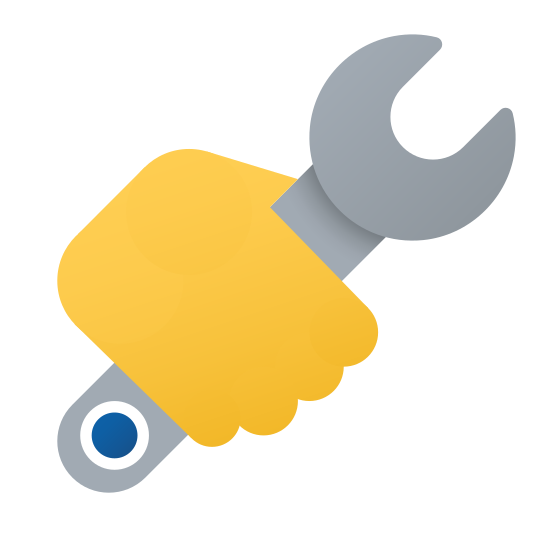Work Experience Calculator - EXP Calculator
The online work experience calculator is a free tool used to compare two dates. On the other side, you can also calculate Date of Joining(DOJ) and Last Working Date(LWD) easily. It is also known as a work exp calculator.
What is Work Experience?
Work experience refers to any kind of experience that a person gains in working in a particular field or occupation. It can be a component of your formal work experience plan and may refer to your work before beginning a career path or enhancing your present career. It can be achieved before, during, or after graduating from your undergraduate studies. There are several forms and levels of work experience and ways to calculate work experience.
The formula for work experience calculation is: A - B = C
How to Calculate Work Experience?
These steps can help you understand how to calculate work experience according to the educational or job opportunity before you:
- Calculate the amount of time you’ve spent in the industry: The most common way to calculate work experience is by assessing the number of hours/weeks/months or years you have spent in a role or the duration of your comprehensive work in the industry. In both cases, you have to subtract the last date of employment/current date of employment (if you are currently working in the role) and the date of joining.
- Research the university or company: Different companies may have various interpretations of experience levels. For example, one organisation might want someone for an intermediate-level job with four years of experience, while another might require only two years. The same applies to universities; there might be different work experience requirements for various courses in other countries. It is always wise to personally research the university of your preference.
- Look at the qualifications instead: This is a crucial step in how to calculate work experience. You should view the job description of the role you are interested in carefully, especially the favoured skills and qualifications section. Universities also have specific criteria mentioned in their eligibility requirements section. For example, an MBA may require a full-time work experience of a minimum of two years, while an Executive MBA may require more years of work experience. To gain clarity, you also contact the human resource manager of a company or the admission counsellor of a university.
- Consider internships and work experience: Many employers may recognise unpaid experiences, such as volunteer opportunities and internships for a certain level. At the same time, many universities or employers may not consider internships and volunteer experience as a part of work experience. Hence, you should be mindful of this while understanding how to calculate work experience.
FAQs
How is work experience calculated?
How is work experience calculated?
- Step 1: Enter the work experience details of the two dates (i.e) Date of Joining - A and Last Working Date - B
- Step 2: Dates are formatted in DD-MM-YYYY/MM-DD-YYYY.
- Step 3: Subtract Date of Joining and Last Working Date, (i.e.) A-B = C
- Step 4: Now you get C.
- Step 5: Thus the work exp is found easily now.
What is the formula for work experience calculation?
What is the formula for work experience calculation?
Work experience is the difference between two dates. The formula for work experience calculation is
A - B = C
That means you minus the two dates.
How to calculate work experience?
How to calculate work experience?
- Step 1: First, consider the Date of Joining (i.e) DOJ.
- Step 2: Then, consider the Last Working Date (i.e) LWD.
- Step 3: Calculate the difference between Date of Joining and Last Working Date.
- Step 4: Minus the two dates.
- Step 5: Hence, the difference is mathematically proved.
Why do we need to calculate work or job experience?
Why do we need to calculate work or job experience?
it is necessary for everyone to know has to calculate their work or job total or relevant experience as it is the must criteria for them when they want to change the current company and join new one. No need to calculate your work experience manually, let Mr Online Tools do the dirty work for you - online calculator gives you the friendly way of calculating your work or job experience.
How do i write my work experience in a resume?
How do i write my work experience in a resume?
- Step 1. Include your previous employers: Always provide the full names of all the companies for which you previously worked. It is best to list your work history in reverse chronological order, starting with the most recent job at the top, followed by the next most recent and so on.
- Step 2. Mention your job location: You also should include the location of your previous company. You do not have to provide the full address. Just mentioning the city and the state is sufficient.
- Step 3. Specify the dates of employment: Next, you should mention the start and end dates of each employment. The start date is when you started working, and the end date is your last date of employment with a company.
- Step 4. Write your job title: Clearly mention your job titles in the previous companies. Be specific when specifying the job titles. Instead of mentioning that you were a “Developer”, mention that you worked as a “Java Developer.”
- Step 5. List your responsibilities: In this part, you do not have to list down the job description of your previous employment. Try to concisely describe your significant responsibilities and skills, which helped you complete a task.
How can i get work experience as a student?
How can i get work experience as a student?
- 1. Formal work experience placement: Often up to a week in a location arranged by your school or independently. Typically unpaid, this is an opportunity to learn about the world of work and see it in action.
- 2. School leaver careers fairs and employer events: A chance to meet either lots of employers in one go or a single employer, for example via an open evening at its offices. Look out for virtual events during the Covid-19 pandemic.
- 3. Employer’s insight day or week for school leavers: Some organisations that run apprenticeships also offer you the chance to spend a day or more seeing for yourself what working there would be like and meeting employees who have joined straight from school. Professional services firms and IT employers commonly run insight weeks or days.
- 4. Extracurricular activities: Being part of a sports team or another club or group such as a theatre group or choir. Involvement in the Scouts or Guides, or Duke of Edinburgh award scheme.
- 5. Entrepreneurship: Perhaps you aspire to run your own business one day, or maybe you’ve got a commercial idea that you’re keen to get off the ground. Employers are keen to take on candidates with entrepreneurial flair, so it’s well worth honing your skills whether or not you go on to set up your own venture.
- 6. Competitions: Look out for competitions in areas that interest you, for example design, writing, maths or business.
- 7. Part-time jobs: A part-time job such as working in a shop gives you customer service and time management skills and helps to develop your commercial awareness. Doing a paper round or babysitting calls for responsibility and resilience. Employers like evidence that you can be relied on to turn up when expected and stick at what you’re meant to be doing till you’ve seen it through.
- 8. Personal projects: If you’ve designed and made something under your own steam, such as a DIY or craft project, a website or a blog, you may well have developed the problem-solving and creative skills that employers look for.
- 9. Positions of responsibility: Are you head boy or head girl, a sports captain or house captain? Have you been a student representative, taking prospective pupils and parents on tours and speaking to them, or been involved in the school council? Have you have a leadership or committee role in a group or club? This kind of experience hones the communication and leadership skills employers want.
Why is work experience so important?
Why is work experience so important?
Experience is important because it allows you to grow and evolve. When you are presented with a new environment, you will learn how to adapt to the situation to succeed. You may also develop brand new ideas and strategies as a result of your experience with different things.


